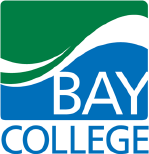1.5: Common Writing Assignments
- Page ID
- 6224
College writing assignments serve a different purpose than the typical writing assignments you completed in high school. In high school, teachers generally focus on teaching you to write in a variety of modes and formats, including personal writing, expository writing, research papers, creative writing, and writing short answers and essays for exams. Over time, these assignments help you build a foundation of writing skills.
In college, many instructors will expect you to already have that foundation.
Your college composition courses will focus on writing for its own sake, helping you make the transition to college-level writing assignments. However, in most other college courses, writing assignments serve a different purpose. In those courses, you may use writing as one tool among many for learning how to think about a particular academic discipline.
Additionally, certain assignments teach you how to meet the expectations for professional writing in a given field. Depending on the class, you might be asked to write a lab report, a case study, a literary analysis, a business plan, or an account of a personal interview. You will need to learn and follow the standard conventions for those types of written products.
Finally, personal and creative writing assignments are less common in college than in high school. College courses emphasize expository writing, writing that explains or informs. Often expository writing assignments will incorporate outside research, too. Some classes will also require persuasive writing assignments in which you state and support your position on an issue. College instructors will hold you to a higher standard when it comes to supporting your ideas with reasons and evidence.
Table 1.2 “Common Types of College Writing Assignments” lists some of the most common types of college writing assignments. It includes minor, less formal assignments as well as major ones. Which specific assignments you encounter will depend on the courses you take and the learning objectives developed by your instructors.
| Assignment Type | Description | Example |
|---|---|---|
| Personal Response Paper | Expresses and explains your response to a reading assignment, a provocative quote, or a specific issue; may be very brief (sometimes a page or less) or more in-depth | For an environmental science course, students watch and write about President Obama’s June 15, 2010, speech about the BP oil spill in the Gulf of Mexico. |
| Summary | Restates the main points of a longer passage objectively and in your own words | For a psychology course, students write a one-page summary of an article about a man suffering from short-term memory loss. |
| Position Paper | States and defends your position on an issue (often a controversial issue) | For a medical ethics course, students state and support their position on using stem cell research in medicine. |
| Problem Solution Paper | Presents a problem, explains its causes, and proposes and explains a solution | For a business administration course, a student presents a plan for implementing an office recycling program without increasing operating costs. |
| Literary Analysis | States a thesis about a particular literary work (or works) and develops the thesis with evidence from the work and, sometimes, from additional sources | For a literature course, a student compares two novels by the twentieth-century African American writer Richard Wright. |
| Research Review or Survey | Sums up available research findings on a particular topic | For a course in media studies, a student reviews the past twenty years of research on whether violence in television and movies is correlated with violent behavior. |
| Case Study or Case Analysis | Investigates a particular person, group, or event in depth for the purpose of drawing a larger conclusion from the analysis | For an education course, a student writes a case study of a developmentally disabled child whose academic performance improved because of a behavioral-modification program. |
| Laboratory Report | Presents a laboratory experiment, including the hypothesis, methods of data collection, results, and conclusions | For a psychology course, a group of students presents the results of an experiment in which they explored whether sleep deprivation produced memory deficits in lab rats. |
| Research Journal | Records a student’s ideas and findings during the course of a long-term research project | For an education course, a student maintains a journal throughout a semester-long research project at a local elementary school. |
| Research Paper | Presents a thesis and supports it with original research and/or other researchers’ findings on the topic; can take several different formats depending on the subject area | For examples of typical research projects, see Chapter 12 “Writing a Research Paper.” |
Part of managing your education is communicating well with others at your university. For instance, you might need to e-mail your instructor to request an office appointment or explain why you will need to miss a class. You might need to contact administrators with questions about your tuition or financial aid. Later, you might ask instructors to write recommendations on your behalf.
Treat these documents as professional communications. Address the recipient politely; state your question, problem, or request clearly; and use a formal, respectful tone. Doing so helps you make a positive impression and get a quicker response.
- College-level reading and writing assignments differ from high school assignments not only in quantity but also in quality.
- Managing college reading assignments successfully requires you to plan and manage your time, set a purpose for reading, practice effective comprehension strategies, and use active reading strategies to deepen your understanding of the text.
- College writing assignments place greater emphasis on learning to think critically about a particular discipline and less emphasis on personal and creative writing


